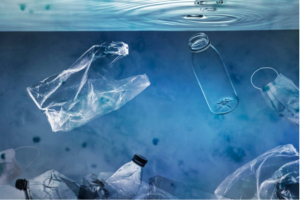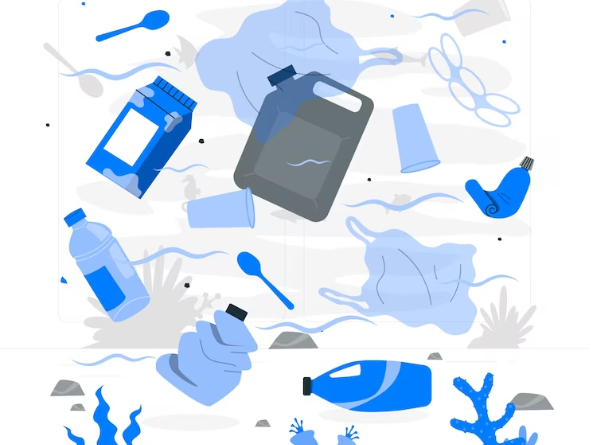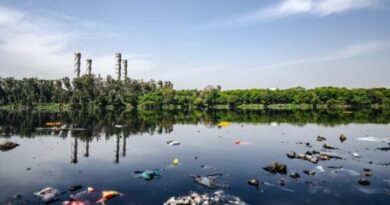6 harmful effects of plastic bags
Unveiling the Harmful Effects of Plastic Bags: A Comprehensive Analysis
What is Plastic Pollution?
Plastic tainting is a normal issue that arises out of the wide use and unseemly evacuation of plastic materials, particularly plastic packs. To grasp the gravity of the issue, it’s central to jump into the start of plastic and research the antagonistic effects it has on our natural components.
Origin of Plastic:
Plastics are manufactured polymers from petrochemicals, overwhelmingly obtained from raw petroleum and flammable gas. The most common way of making plastic includes polymerization, shaping long chains of polymers. This progressive material was at first produced for its adaptability and strength, prompting its broad use across different ventures.
The ascent of plastic creation can be followed back to the mid-twentieth 100 years, and from that point forward, its utilization has soared around the world. The sheer volume of plastic delivered, combined with its protection from disintegration, has led to a huge ecological test.
Harmful Effects of Using Plastic Bags on the Environment:
Plastic sacks, specifically, represent a serious danger to the climate because of their non-biodegradable nature. Not at all like natural materials, plastic packs persevere in the climate for many years, contributing altogether to contamination. The destructive impacts can be arranged into different angles:
Environmental Impact:
- Land Contamination: Ill-advised removal of plastic sacks ashore prompts unattractive litter, influencing environments and upsetting the normal scene.
- Water Contamination: Plastic sacks frequently find their direction into water bodies, causing defilement and jeopardizing oceanic life.
Wildlife and Ecosystem Disturbance:
- Natural life Danger: Creatures frequently botch plastic packs for food, prompting ingestion and expected hurt. This imperils marine life as well as disturbs the fragile equilibrium of environments.
- Living space Interruption: Aggregation of plastic waste modifies normal natural surroundings, influencing the verdure that relies upon those conditions.
Societal Consequences:
- Human Wellbeing Dangers: The synthetics utilized in plastic creation can filter into the climate, presenting well-being dangers to people. This incorporates the potential for destructive substances to enter the pecking order.
Environmental Impact of Plastic Bags

Plastic sacks, universal in day-to-day existence, employ a critical natural effect that reaches out a long way past their comfort. This part digs into the diverse results of plastic pack utilization, incorporating their consequences for the climate, untamed life, and the general soundness of environments.
The Effects of Plastic Bags on The Environment:
Plastic Bag Litter:
Plastic packs, being lightweight and effortlessly conveyed by the breeze, frequently end up as litter in metropolitan and regular scenes. This not only damages the tasteful allure of the environmental elements yet in addition represents a danger to natural life. Creatures can get snared in these packs, prompting injury or demise.
The Effects of Plastic Bags in Waterways:
Plastic sacks have a famous propensity to find their direction into water bodies, representing a serious danger to sea-going biological systems. The packs separate into more modest particles after some time, delivering microplastics into the water. This contamination influences marine life, as the ingestion of microplastics by fish and other sea-going creatures upsets their well-being and regenerative cycles.
The Effects of Plastic Bags on Land:
Ashore, and plastic sacks upset soil richness and water retention. The amassing of plastic waste in soil disturbs microbial action and supplement cycling, affecting plant development. Moreover, plastic packs can stop stormwater depletes and worsen flooding during heavy downpours.
Massive accumulations of plastic bags block drainage systems:
The ill-advised removal of plastic packs frequently prompts the stopping of waste frameworks. This blockage causes neighborhood flooding as well as hampers the productive administration of stormwater. The results stretch out to expanded water contamination as stale water in impeded channels turns into a favorable place for sickness-conveying vectors.
Plastic bags are the main cause of the Great Pacific Garbage Patch:
The combined effect of plastic packs, alongside other plastic trash, has contributed fundamentally to the development of enormous maritime trash patches. The most scandalous among these is the Incomparable Pacific Trash Fix, a colossal collection of drifting plastic garbage in the Pacific Sea. This jeopardizes marine life as well as features the worldwide size of the plastic contamination issue.
Health Concerns Related to Plastic Bags
Past their noticeable ecological effect, plastic sacks present potential well-being dangers to the two people and creatures. This part reveals insight into the poisonous parts of plastic packs, the synthetic substances delivered during their assembling, and the related well-being concerns.
Plastic Food Storage Packages Have Toxic Chemicals:
Numerous plastic sacks utilized for food capacity contain unsafe synthetic compounds, for example, bisphenol A (BPA) and phthalates. These synthetic substances can drain into the put-away food, particularly when presented with intensity or daylight. Drawn-out utilization of such tainted food might prompt unfavorable well-being impacts, including hormonal interruptions and formative issues.
Toxic Chemicals Are Released During Plastic Manufacturing:
The creation cycle of plastic packs includes the utilization of different synthetic substances, some of which are dangerous to human well-being. These synthetic substances can be delivered out of sight and water during assembling, adding to air and water contamination in encompassing regions. Laborers in plastic assembling enterprises might confront word-related well-being by taking a chance because of openness to these harmful substances.
Plastic Can Increase the Risk of Prostate Cancer in Men:
Certain examinations have proposed a possible connection between delayed openness to phthalates tracked down in plastic items, including sacks, and an expanded gamble of prostate malignant growth in men. While more examination is expected to lay out decisive proof, the current discoveries highlight the requirement for careful use and removal of plastic items.
Non-biodegradability and Pollution
Plastic sacks, being non-biodegradable, contribute altogether to contamination, creating enduring ecological perils. This part investigates the outcomes of the constant idea of plastic sacks, featuring their effect on environments, natural life, and human wellbeing.
Plastic Bags Are Non-Biodegradable:
One of the fundamental issues with plastic sacks is their non-biodegradable nature. Not at all like natural materials that break down normally, plastic sacks persevere for many years, continuing in the climate and adding to long-haul contamination. This life span compounds the difficulties related to plastic waste administration.
Plastic Pollution Disrupts the Natural Food Chain:
As plastic packs separate into more modest particles after some time, they add to the developing issue of microplastic contamination. These minuscule particles enter the established pecking order when ingested by little life forms, in the long run influencing bigger creatures, including people. The disturbance of the normal pecking order presents dangers to both sea-going and earthly environments.
Plastic Bags Result in the Pollution of Groundwater:
Ill-advised removal of plastic sacks, especially in landfills, represents a danger to groundwater quality. Water can permeate through landfills, getting toxins from disintegrating plastic. Over the long haul, this polluted water might reach groundwater sources, influencing the nature of drinking water and presenting potential well-being gambles.
Call for Systemic Change
Tending to the unsafe impacts of plastic sacks requires more than individual endeavors; it requests a far-reaching and foundational change in strategies, guidelines, and cultural standards. This part investigates the need for aggregate activity and the significance of drives at both neighborhood and worldwide levels.
Fundamental Change is Expected to Stop the Progression of Plastic Waste:
While individual endeavors assume a vital part, a more extensive foundational change is basic to check the progression of plastic waste into the climate really. State-run associations, associations, and associations should team up to finish and execute systems that arrangement with the creation, use, and clearing of plastic packs.
Extended Producer Responsibility (EPR):
Moving towards a Lengthy Maker Obligation model can encourage producers to plan more feasible and recyclable bundling. This approach considers makers answerable for the whole lifecycle of their items, empowering the improvement of eco-accommodating other options.
Banning Single-Use Plastics:
Numerous districts have effectively carried out boycotts or limitations on single-use plastics, including plastic sacks. Such measures essentially decrease the age of plastic waste and empower the reception of reusable and harmless ecosystem options.
Promoting Innovation and Research:
Putting resources into examination and advancement to foster elective materials that are biodegradable, practical, and present less ecological and well-being chances is vital. Legislatures and confidential areas ought to help drives pointed toward tracking down imaginative answers to supplant conventional plastic sacks.
Educational Campaigns and Public Awareness:
Raising public mindfulness through instructive missions is fundamental in cultivating a feeling of obligation and empowering reasonable practices. Informed buyers are bound to settle on decisions that line up with natural protection.
International Collaboration:
Given the worldwide idea of plastic contamination, global cooperation is fundamental. Countries should cooperate to lay out and stick to normal principles, share best practices, and altogether address the transboundary development of plastic waste.
Mitigation Strategies
People assume a significant part in relieving the hurtful impacts of plastic sacks by embracing reasonable practices and going with informed decisions. This segment gives reasonable tips to diminish plastic waste, energizes reusing endeavors, and investigates elective choices to limit the natural effect of plastic packs.
Tips to Avoid Plastic Waste:
Embrace Reusable Bags:
Settle on reusable packs made of eco-accommodating materials like fabric, jute, or reused filaments. Save a couple of reusable sacks convenient for shopping excursions to lessen dependence on single-utilized plastic packs.
Say No to Single-Use Plastics:
Decline single-utilized plastic packs when presented at stores. All things being equal, convey a foldable or reduced reusable sack for startling buys. This basic propensity altogether lessens the interest in plastic packs.
Bring Your Own Containers:
While buying food things or takeout, carry your own compartments to stay away from expendable plastic bundling. This diminishes plastic waste as well as advances the utilization of manageable other options.
Choose Products with Minimal Packaging:
Pick items with negligible bundling, and whenever the situation allows, select things bundled in materials that are effectively recyclable or biodegradable. Being a cognizant customer adds to lessening generally speaking plastic utilization.
Recycling Plastic Bags:
Locate Specialized Collection Bins:
Numerous supermarkets and reusing focuses have devoted containers for plastic sack reusing. Gather and store plastic packs independently at home, then store them in these canisters to guarantee appropriate reusing.
Follow Local Recycling Guidelines:
Find out about neighborhood reusing rules. Not all reusing offices acknowledge plastic sacks, so it’s fundamental to adhere to explicit directions to guarantee legitimate removal.
Repurpose Plastic Bags:
Get innovative and track down approaches to reuse plastic sacks around the house. They can be utilized for stockpiling, as pressing material, or even changed into reusable specialties. Reusing broadens the life expectancy of the packs and decreases the requirement for new ones.
Alternatives to Plastic Bags:
Reusable Produce Bags:
Put resources into reusable produce sacks made of texture or lattice for foods grown from the ground. These options are launderable, and tough, and dispense with the requirement for plastic produce sacks.
Compostable Bags:
Investigate compostable sack choices for garbage removal. These sacks break down more promptly than conventional plastic packs, adding to the diminished natural effects.
By integrating these commonsense tips into day-to-day existence, people can contribute altogether to diminishing the utilization of plastic sacks and limiting their unfriendly consequences for the climate. Furthermore, supporting and upholding more extensive drives, for example, neighborhood and worldwide strategies to manage plastic use, reinforces the aggregate exertion toward a more maintainable and plastic-cognizant society.




